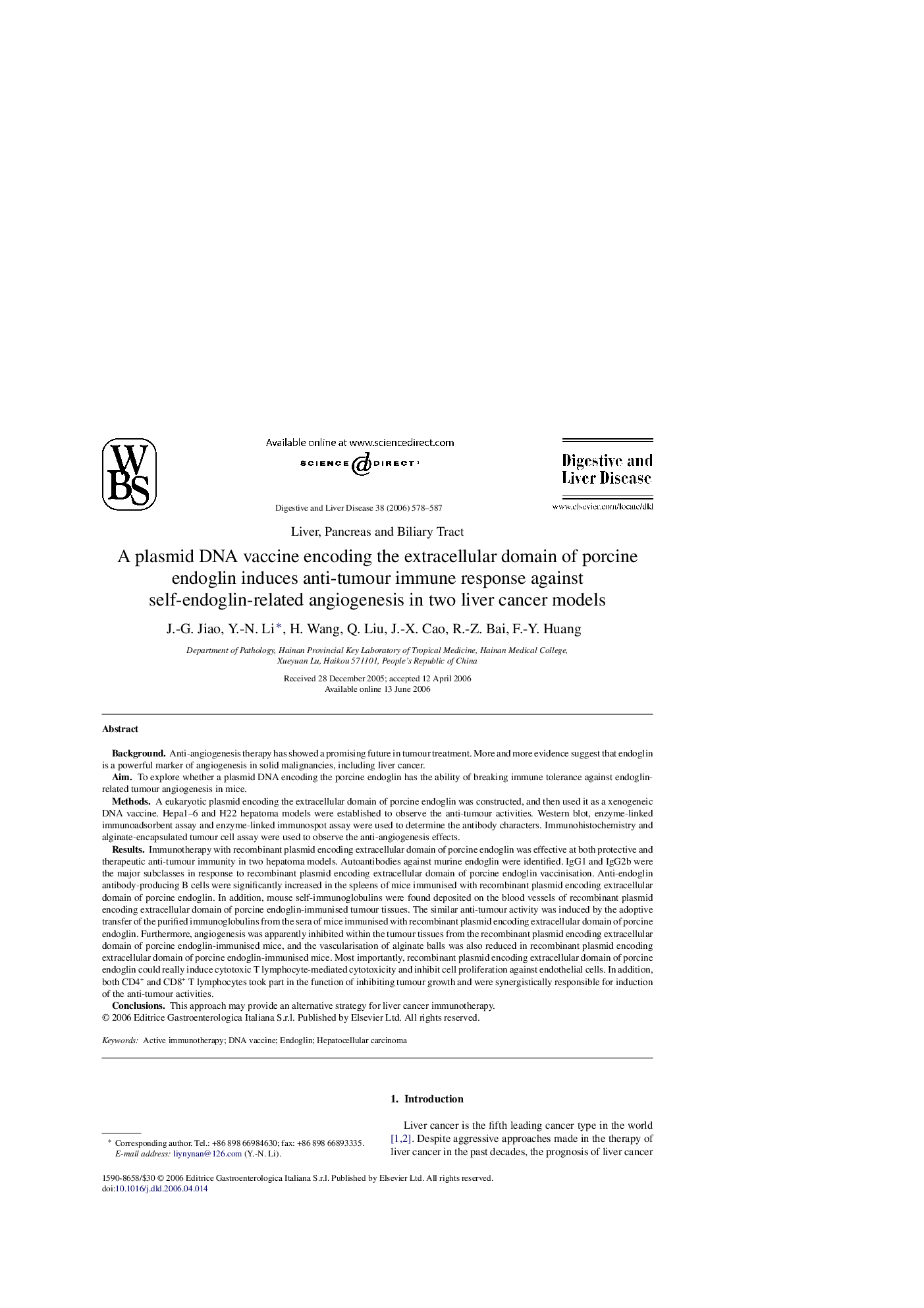| کد مقاله | کد نشریه | سال انتشار | مقاله انگلیسی | نسخه تمام متن |
|---|---|---|---|---|
| 3266545 | 1207850 | 2006 | 10 صفحه PDF | دانلود رایگان |

BackgroundAnti-angiogenesis therapy has showed a promising future in tumour treatment. More and more evidence suggest that endoglin is a powerful marker of angiogenesis in solid malignancies, including liver cancer.AimTo explore whether a plasmid DNA encoding the porcine endoglin has the ability of breaking immune tolerance against endoglin-related tumour angiogenesis in mice.MethodsA eukaryotic plasmid encoding the extracellular domain of porcine endoglin was constructed, and then used it as a xenogeneic DNA vaccine. Hepa1–6 and H22 hepatoma models were established to observe the anti-tumour activities. Western blot, enzyme-linked immunoadsorbent assay and enzyme-linked immunospot assay were used to determine the antibody characters. Immunohistochemistry and alginate-encapsulated tumour cell assay were used to observe the anti-angiogenesis effects.ResultsImmunotherapy with recombinant plasmid encoding extracellular domain of porcine endoglin was effective at both protective and therapeutic anti-tumour immunity in two hepatoma models. Autoantibodies against murine endoglin were identified. IgG1 and IgG2b were the major subclasses in response to recombinant plasmid encoding extracellular domain of porcine endoglin vaccinisation. Anti-endoglin antibody-producing B cells were significantly increased in the spleens of mice immunised with recombinant plasmid encoding extracellular domain of porcine endoglin. In addition, mouse self-immunoglobulins were found deposited on the blood vessels of recombinant plasmid encoding extracellular domain of porcine endoglin-immunised tumour tissues. The similar anti-tumour activity was induced by the adoptive transfer of the purified immunoglobulins from the sera of mice immunised with recombinant plasmid encoding extracellular domain of porcine endoglin. Furthermore, angiogenesis was apparently inhibited within the tumour tissues from the recombinant plasmid encoding extracellular domain of porcine endoglin-immunised mice, and the vascularisation of alginate balls was also reduced in recombinant plasmid encoding extracellular domain of porcine endoglin-immunised mice. Most importantly, recombinant plasmid encoding extracellular domain of porcine endoglin could really induce cytotoxic T lymphocyte-mediated cytotoxicity and inhibit cell proliferation against endothelial cells. In addition, both CD4+ and CD8+ T lymphocytes took part in the function of inhibiting tumour growth and were synergistically responsible for induction of the anti-tumour activities.ConclusionsThis approach may provide an alternative strategy for liver cancer immunotherapy.
Journal: Digestive and Liver Disease - Volume 38, Issue 8, August 2006, Pages 578–587